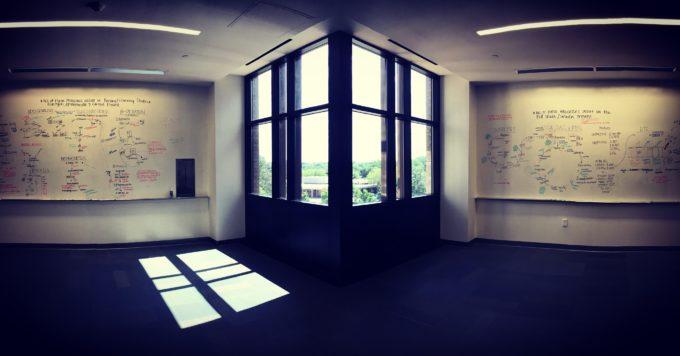
Get the latest articles delivered directly to your inbox!
Our Contributors
Class of 2022
Kyle Duke
Austin Foster
Charlotte Leblang
Ross Lordo
Class of 2021
Dory Askins
Connor Brunson
Keiko Cooley
Mason Jackson
Class of 2020
Megan Angermayer
Carrie Bailes
Leanne Brechtel
Hope Conrad
Alexis del Vecchio
Brantley Dick
Scott Farley
Irina Geiculescu
Alex Hartman
Zegilor Laney
Julia Moss
Josh Schammel
Raychel Simpson
Teodora Stoikov
Anna Tarasidis
Class of 2019
Michael Alexander
Caitlin Li
Ben Snyder
Class of 2018
Alyssa Adkins
Tee Griscom
Stephen Hudson
Eleasa Hulon
Hannah Kline
Andrew Lee
Noah Smith
Crystal Sosa
Jeremiah White
Jessica Williams
Class of 2017
Carly Atwood
Laura Cook
Ben DeMarco
Rachel Nelson
Megan Epperson
Rachel Heidt
Tori Seigler
Class of 2016
Shea Ray
Matt Eisenstat
Eric Fulmer
Geevan George
Maglin Halsey
Jennifer Reinovsky
Kyle Townsend
Join USCSOMG students on their journeys to becoming exceptional physician leaders.

The Failure Bow
I am about 17 weeks into medical school, and several things have become increasingly clear to me: how little I know, how little I can ever hope to know, and how I have grown to accept those realizations and feel at peace with them.
The analogy that medical school is like drinking from a firehose of knowledge is spot-on. But rather than feeling drowned by this jet of water, I have decided to ride the wave. I finally understand that the key to being successful in medical school is to realize that I will not, in fact, master every last little detail that I am taught.
This means accepting failure and my own fallibility as a human being. It means accepting that I cannot and will never have all the answers. On the flip side, it means that when I become a physician, I will strive to develop into an expert in a specific field of knowledge. To provide holistic care for my patients and come up with diagnoses, I will never hesitate to tap into the expertise of my peers.
As I progress through school, I have become increasingly more comfortable with speaking up in class when I don’t understand a concept, either among my peers in group work or directly to our instructors, stating: “I don’t get it” or “I don’t know.” The instructor in our Foundations course likened this ability to speak up and admit that you do not understand something to a manifestation of “courage.” I had never before considered speaking up and stating that I don’t know something a courageous act, but I’ll embrace this analogy, which provides me comfort and reassurance.
I see a similar concept at play in my previous career as an actor. Improvisational theater has a notion called the “failure bow.” When rehearsing for a play or simply improvising with fellow actors, if I get a line of dialogue wrong, interrupt my fellow actor, or break the fourth wall, I acknowledge my mistake by stating “I failed” and take a bow. As part of this exercise, my peers then applaud me for taking the bow. This simple action feels liberating: it acknowledges my own imperfections and reaffirms my vulnerability as a person.
As a physician in training, I am not used to making mistakes. After all, I was accepted to medical school because I studied hard, and excelled at acquiring vast amounts of knowledge throughout my undergraduate coursework. Yet, these first few weeks of medical school have shown me that in order to become a competent and empathetic healthcare professional, I must accept that perfection is not achievable. Otherwise, how can I ever expect to relate empathetically to my patients? How can I truly understand, as just one example, a patient who struggles with smoking cessation if I do not acknowledge my own limitations?
So far, medical school has shown me that I must cultivate not just scientific knowledge, but self-knowledge as well. Knowing – which leads to understanding and, ultimately, accepting – myself can provide me the skills I need to help my patients. So that I can see myself in them, and them in me, and so that we can together work as a team to fulfill their needs and expectations.
I am ready to embrace the fact that I will not ever know everything. I cannot. It is impossible. Each time I fall down, I will rise again and try harder. I cannot wait to take many failure bows for the rest of my medical school education. I will do so with a smile, resting safe in the knowledge that these micro-failures are all in service of becoming a self-aware physician, and that my own growing self-knowledge will allow me to develop deeper, stronger and more genuine connections with all the patients that I encounter.
Alexis del Vecchio is a graduate of Yale where he majored in Theater Studies. He was a professional voice-over actor before college. Since graduation, he has produced television movies, acted in national commercials, seen his original plays performed on both coasts, and founded two companies in the educational field. He has lived in Florida, Maryland, Connecticut and California, and now calls Greenville home. He never wants to leave South Carolina – why would anyone want to live anywhere else? – and is thrilled and grateful to attend USCSOMG.
Copyright 2021 USC School of Medicine Greenville


